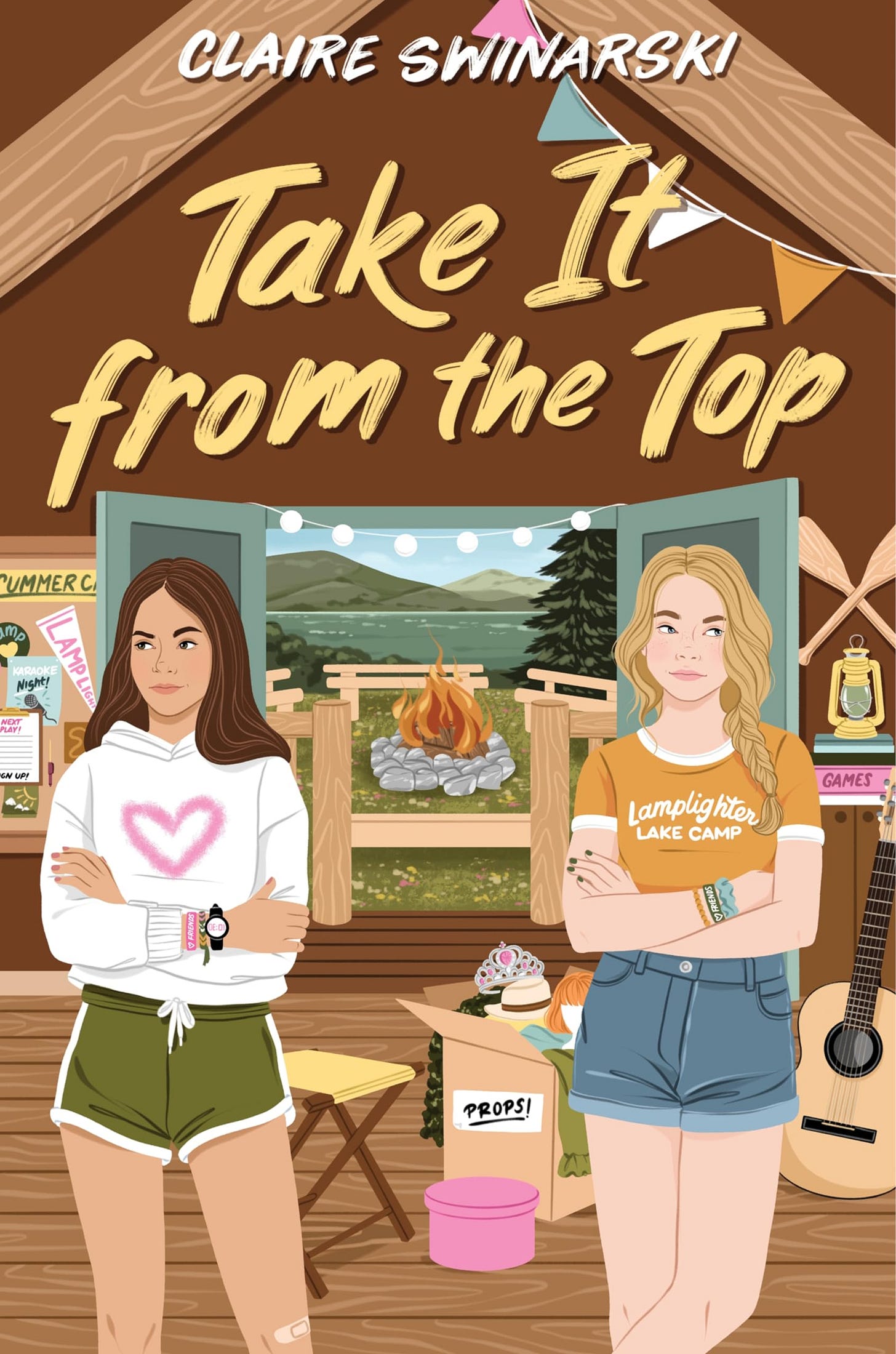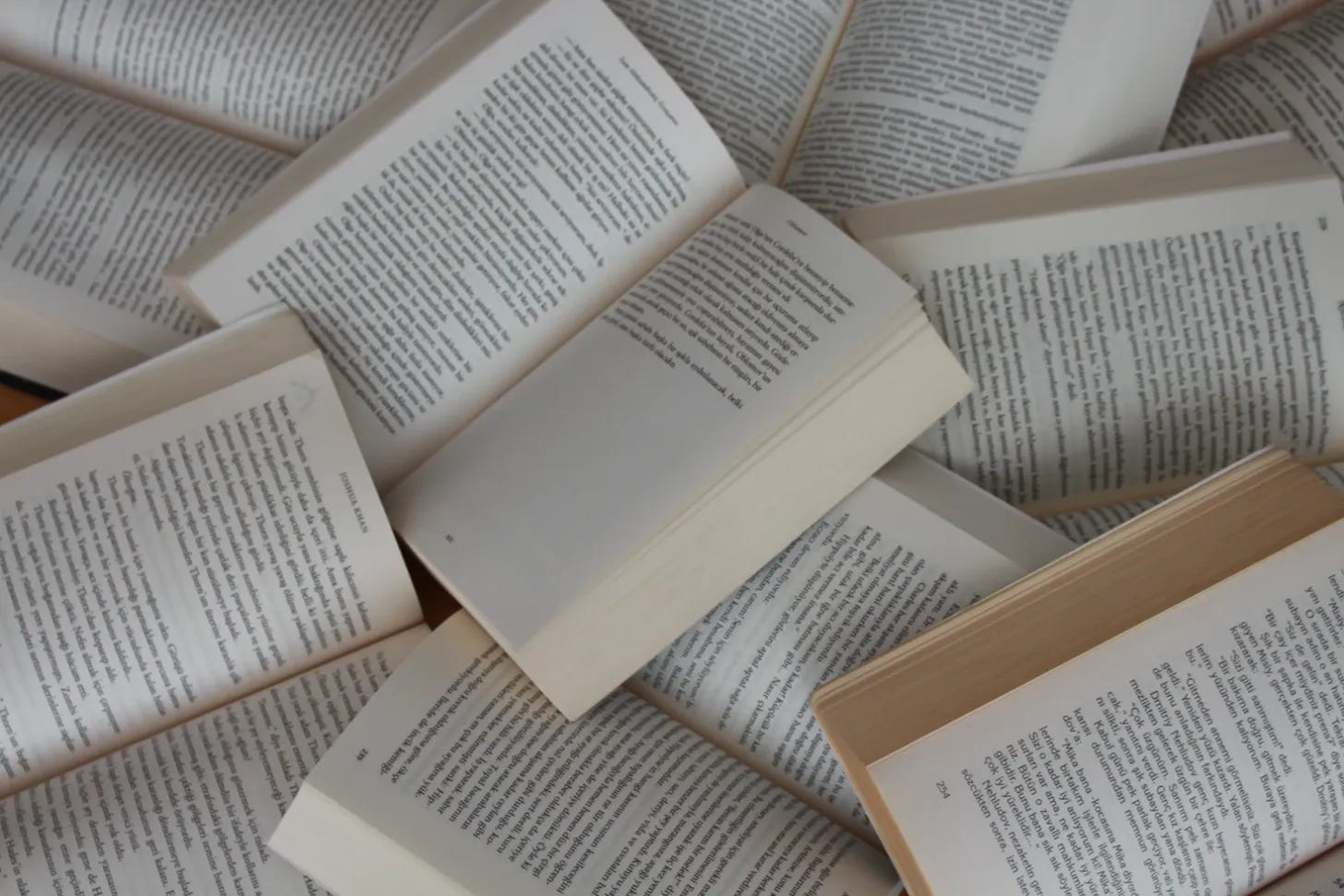How to Receive an Edit Letter Without Having an Existential Crisis
+ some February 2025 updates ❄️
February in Wisconsin is usually an endless gray slate of snow and mud, but this year I feel like the sun has been peeking out more than normal. We’ve also had barely any snowfall the past few weeks, which is devastating to my children but just fine by me. We haven’t even pulled the sleds out for two months, but we’re venturing up north this weekend for a day of ice skating in 15 degree weather. I’ll keep you posted on how long the little ones (and I) last.
Much of my life the past few weeks has revolved around editing my upcoming middle grade novel, Each and Every Spark. This one won’t be out for quite a while yet—and we still don’t have a release date, unfortunately—but part of it takes place in World War 2 during the occupation of Paris. It’s also in third person. So many firsts for me, and I can’t wait for you to read it.
Today I want to share a peak behind the curtain at my editing process for Each and Every Spark.
I’ve written before about growing up as a theater kid. One of my children has an interest in theater and might be auditioning for a show soon if I can convince her, but I was thinking of this recently as I pondered why some authors seem to be, um—is emotionally fragile a mean phrase? I’m not trying to be hurtful, but this career is full of so many pitfalls and we’re a dramatic, imaginative bunch. It’s necessary for storytelling but can make for a very uneasy online presence. So many crying-in-a-car-TikToks.
But I think the reason some of us are able to stick in it without a public mental breakdown (yet, el oh el) is because we were those theater kids. From the time I was 8, I was auditioning for shows in front of rooms full of people. I was singing publicly. I was getting notes from the director in front of everybody. I was being cut from casts and put in the chorus when I wanted a lead role. I was disappointed, consistently, because I was not that good. But little by little, it gave me something I’m beginning to think is absolutely required to move through life: the ability to receive feedback, criticism, and failure without turning in on oneself in a ball of existential sorrow.
Being bad at stuff at a young age is, actually, good for you.
That being said: I ain’t perfect. The first couple of books I wrote, the edit letter (what an editor sends back going over the overarching edit-themes of your story) made me want to hang out in the fetal position for a while. This many books in, however, I have a routine. A ritual. A Way of the Edit, if you will.
First, I might cry. I might! Y’girl is a cryer and I don’t care who knows it! But I give myself a time limit to feel like garbage. Usually about an hour. This is a pile of garbage. It is ridiculous. I am a phony little Fiona and should hang it up now.
Then, I peek at the letter as if it were some kind of snake that might bite me. A real quick pop-in. My sweet editor isn’t southern but she writes like a debutante; in other words, she’s mastered the art of the criticism sandwich. Praise about the book! Things we need to fix! More praise! Okay! Okay, we can do this!
I bask in the praise, chasing it like it’s a backyard chicken and I’m a hangry fox.
I treat myself to a latte. I used to be a bougie coffee-shop regular but my sister-in-law gifted me a milk frother and coffee syrups for Christmas so I’ve been making bootleg raspberry lattes at home *chef’s kiss*.
I read the criticisms and take notes on bigger themes. These almost always include issues with the timeline (I don’t typically pay attention to dates while I write—they get me confused and take me out of the sweet spot of creativity. Three Fridays in a row? Bothers me not, ya freaks!), a lack of character development of the dad (I love writing a mom; I struggle writing a dad), and basically just needing to lean into hard, painful, teary-eyed moments. For this particular book, there was also a concern about which character discovers something and the big why behind the main character’s mission. And she thought I made all of the Parisians too snobby about their language, which—well. Let’s just say I’ve been to Paris1. ;)
I start at the beginning of the book and read it through again before I do anything, just to start making notes and brainstorming about how/where I could implement edits. This time around, I also added some historical details that I’ve learned since I first turned the book in last summer.
Back to the beginning. Now, I work my way through, implementing edits as I go, making sure to always note where I pause. I make notes about things I need to return to as well that I’m getting stuck on, but need to move on from temporarily (ie.—what’s the neighbor’s name going to be? Right now, it’s Monsieur Blah Blah. I can’t give this anymore time or I will spend my entire afternoon looking up pronunciations of French surnames. Fix it in post, as my video-editor brother likes to say.)
Read through again to implement those notes that I made (bonjour, Monsieur Bassot) and catch any mistakes.
Read through again to tighten everything up. Yes, I am very sick of each book by the time it releases, which is juuuuust when I have to start talking about it constantly. 💀
Double-check edit letter. My editor puts a ton of time into her edit letters, so I always want to make sure I’m reading it thoroughly.
Send. Fall into an exhausted heap of sludge. Daydream about giving it all up and purchasing a bookstore. Read the
newsletter and remind myself that running a bookstore is actually, like, hard.
This is not the final step of editing. It’s not even halfway! Next, I’ll receive line edits—little tacky-tacky notes reminding me that I use the words nodded and said flatly too much. Then it’s onto copyedits, where someone will fix my horrendous grammar and add all of those French accent marks that I messed up. Then first pass pages, where we all (me, editor, copyeditor) read the book again with a fine-tooth comb and I finally let my husband, who is the most detail-oriented human being that has ever walked the planet, read the book. We’ll move on to reading the digital advance copies, where we almost always catch a formatting bug or skipped word. And finally—finally—the book gets into your hands, where you email me informing me I misspelled something on page 17. C’est la vie.
Whenever I give school visits, I spend a lot of time talking about the revision process because kids tend to hate revising. But their teachers always appreciate that part of the talk, because revision truly is so important. It takes much, much longer to edit a book than it does to draft one. But it’s the meat of the process, where the words you spat out into Microsoft Word finally string together like pearls of a necklace to become a story.
I can’t wait for you to see what I made for you.
I was really delighted to be featured in two newsletters that I love this month: Sarah Miller’s Can We Read?, whose booklists I peruse constantly, and Sarah Allen’s Smorgasbord, the writings of a terrific middle grade author.
I also continue to hear from readers who loved What Happened to Rachel Riley, which just strengthens my spirit. I’m so over the moon that Anna + Rachel’s story has resonated with so many. It’s funny how books can kind of emerge from unconscious places; I recently stumbled upon the YA book The Body of Christopher Creed in the library and was taken back to absolute core memories of reading that book backstage using a flashlight. I loved that book. I must have read it 5+ times. And Rachel Riley, while much less dark/much more appropriate, has so many similarities to it. Anyway. Just further confirming my belief that books slip into our subconscious and can emerge decades later through our own art.
On June 24, I’m going to be speaking about Funeral Ladies of Ellerie County at the public library in Hartland, WI. Locals—I’d love to see you there!
Soon, I’ll be sharing more about Each and Every Spark, which I talk about earlier in this newsletter. But if you haven’t left an Amazon or GoodReads review for Take it From the Top, I would appreciate it so, so much. Thanks in advance!
And lastly, a book (or two) I’ve loved lately for…
Picture book fans: It's Snowing! It's Snowing!: Winter Poems by Jack Prelutsky has been a really enjoyable read for us this season, as well as Mice Skating by Annie Silvestro.
Middle graders: We’re thick in midst of some terrific MG read alouds. In addition to Harry Potter and the Prisoner of Azkaban by JK Rowling (dramatically performed by moi 😉), we’re listening to Prince Caspian by CS Lewis on audio.
My kids recommend: A new section for the newsletter as the Swinarski kids become more confident readers! Tess (6) is ripping through the Babysitters Club at lightning speed—she did most of the graphic novels and is now reading the OG chapter books themselves. Do I sort of want her to mix it up? Yes. Was I basically raised by Claudia Kishi? Also yes, so I’m letting it go. Benjamin (8) is loving the How to Train Your Dragon book series. Bridget (3) would like to recommend the Golden Book version of Sleeping Beauty, but warns you “it has a very bad girl in it.”
Adults: The Postcard by Anne Berest is a flawless book. It’s a part-memoir, part-historical-novel about a woman who receives an anonymous postcard in the mail listing the names of her four reletives who died in the Holocaust. She decides to investigate who sent it and learn more about her past. (That part’s true.) It’s woven together through a historical narrative of her great-grandparents’ arrival in France (that part’s partly fiction, partly true). Just a beautiful, thrilling read.
Thanks for reading along!
I kid! I love Parisians!







Excellent advice! I’m in edits right now on a manuscript and it’s my first time working with this particular editor. I learn something new every time I go through the process.
Well, as far as your synopsis on the editing process goes, 10/10 no notes. That first email is TERRIFYING.